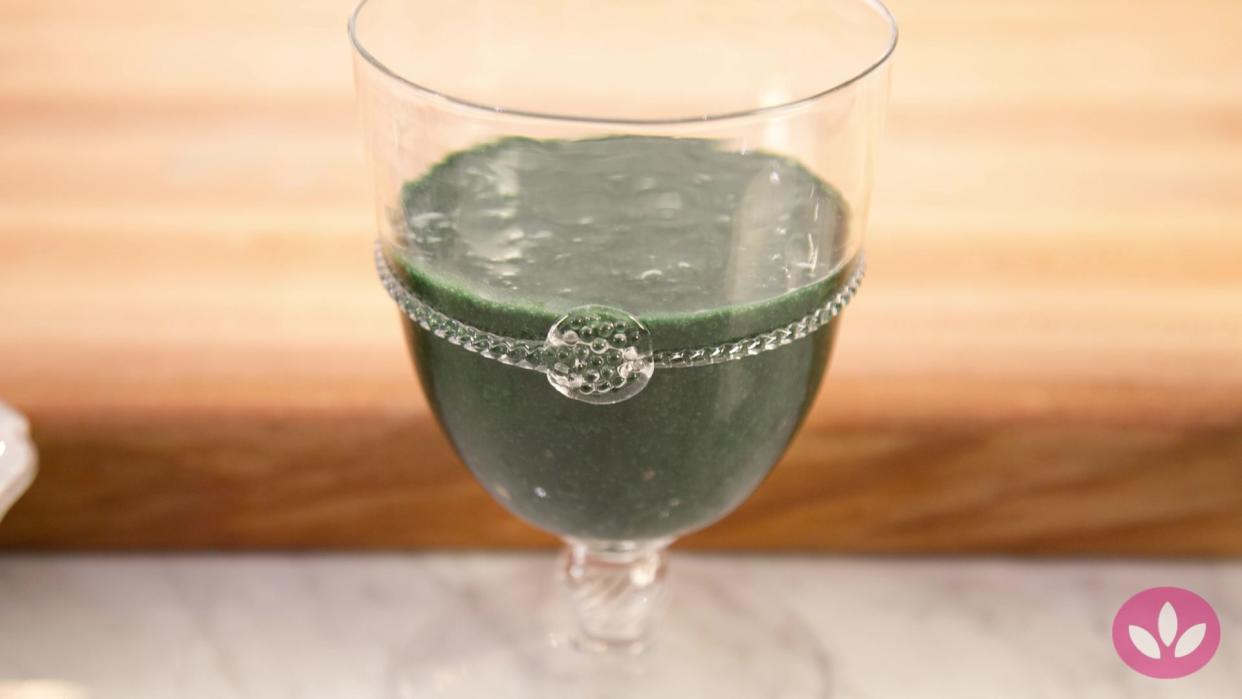5 reasons to add spirulina to your diet

You've likely seen spirulina before in health food stores. The deep, blue-green color of the algae (most commonly sold in powder form) is evidence of its superior health benefits – but it can also scare away people who have no idea what to do with this superfood from the sea.
Spirulina is a freshwater plant that's grown across the globe, from Africa to Hawaii, and is renowned for its remarkable nutritional profile. In addition to being packed with numerous vitamins and nutrients, it's also a great source of plant-based protein and, along with its algae cousin chlorella, is one of the most under-the-radar supplements around.
Enjoyed daily, spiriluna can help restore and revitalize your health, and while it can taste pretty overpowering on its own, it blends into smoothies and juices easily and can also be sprinkled atop soups and salads. It's also a great way for vegetarians to up their iron intake without having to endure bites of steak.
Still not sure you should give it a try? Check out these five health benefits you can reap after adding spirulina to your diet:
Candida Elimination
Candida is a fungus that aids with nutrient absorption and digestion and appears naturally in the body. But when it is left to grow unchecked (candida thrives on the processed sugars and carbs that make up a large portion of the Standard American Diet), it can release toxins into your blood system and upset your body's pH balance. Candida is a chronic condition that can lead to leaky gut, brain fog or weight gain, as well as autoimmune diseases like lupus, Hashimoto's or Crohn's disease.
Thankfully, spirulina can help. Several animal studies show that it's an effective anti-microbial – especially for candida – which means that it slows the growth of and successfully eliminates harmful bacteria. And spirulina has also been shown to promote the growth of healthy bacteria in the gut, which will keep candida in check long-term.
Lower Blood Pressure
Phycocyanin is a pigment found in spirulina that helps lower blood pressure, and while it has yet to be determined exactly how it works, the leading theory is that the algae reverses endothelial dysfunction in metabolic syndrome – that is, there's an imbalance between the relaxation and contraction of the membrane lining the heart and blood vessels, and spirulina helps balance the scales.
Because metabolic syndrome is responsible for raising the risk of heart disease, diabetes and stroke, spirulina's role in regulating blood pressure – sans medication – is not only impressive, but far reaching.
Reduction in Cholesterol
Along those lines, spirulina has also been shown to prevent the buildup of plaque in your arteries – known as atherosclerosis – and reduce high-density liprotein, also known as "bad" cholesterol. One recent study found that feeding rabbits spirulina reduced their HDL levels while increasing LDL, or low-density lipoprotein – the "good" cholesterol.
Another study found that consuming 4.5 grams of spirulina a day for just six weeks significantly lowered bad cholesterol while increasing the good kind, while lowering blood pressure in the process. At a time when prescription medication is widely used to regulate cholesterol, adding cholesterol-lowering foods as an all-natural antidote is imperative.
Cancer Prevention
Could drinking a smoothie help prevent cancer? If spirulina is an ingredient, it might not be so far-fetched. Spirulina increases production of antibodies – the infection-fighting proteins and cells that improve immunity and help ward off chronic illnesses like cancer. One study even found that, in addition to its ability to control blood cholesterol, spirulina is loaded with potent antioxidant agents that reduce cancer cell growth.
Speedy Weight Loss
Diets high in nutrient-dense, protein-rich foods like spirulina are known to promote weight loss. Because protein is used to develop, grow and maintain pretty much every part of our bodies—from our skin and hair, to our immune system antibodies – getting enough of the nutrient on a daily basis is critical. Protein deficiency can lead to low energy (yep, like that daily afternoon slump), trouble building muscles even after all those gym session, low concentration, unstable blood sugar levels and, of course, trouble maintaining or losing weight.
Eating foods like spirulina may help your body become a lean, mean protein machine. Because it takes more energy to metabolize, eating protein helps maintain lean tissue and burn more fat. The algae can also curb hunger, stopping those food cravings in their tracks.
More on spirulina and things to do with it:
More from U.S. News & World Report:
7 Signs You Should Stop Exercising Immediately
15 Best Weight-Loss Diets at a Glance
7 No-Fail Responses to Your Child's Questions About Sex




